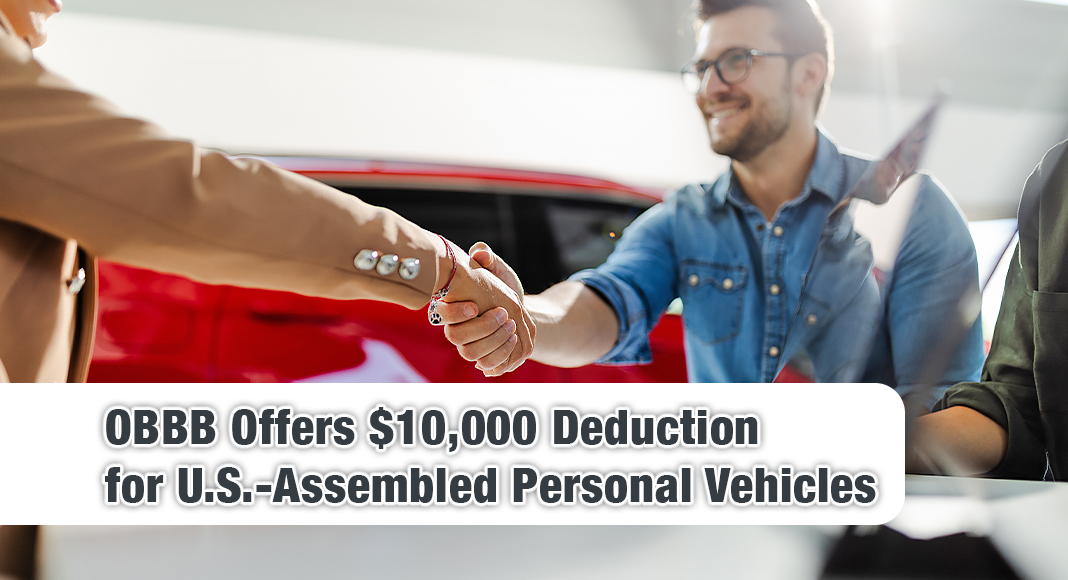
Mega Doctor News
Texas Border Business
A new federal tax deduction created by the One Big Beautiful Bill Act (OBBBA), signed into law on July 4, 2025 (Public Law 119‑21), allows individuals to deduct interest paid on car loans for eligible personal-use vehicles. This deduction is available for tax years 2025 through 2028, meaning it takes effect on January 1, 2025, and expires on December 31, 2028.
The deduction allows individuals to claim up to $10,000 per year in interest on qualifying vehicle loans. The deduction applies “above the line,” which means it can be taken whether or not the taxpayer itemizes deductions. However, it phases out for individuals with a modified adjusted gross income (MAGI) over $100,000, or $200,000 for joint filers.
According to the law, “interest paid by the taxpayer on any indebtedness incurred after December 31, 2024, for the purchase of a new, noncommercial passenger vehicle shall be deductible from gross income, provided the vehicle meets final assembly and other eligibility requirements” (OBBBA §4102).
To qualify, the vehicle must meet the following conditions:
• It must be new, meaning original use begins with the taxpayer.
• It must be for personal use—not commercial, leased, or business-related.
• It must be secured by a lien.
• It must undergo final assembly in the United States.
• It must have a gross vehicle weight rating under 14,000 pounds.
Eligible vehicle types include cars, minivans, vans, SUVs, pickup trucks, and motorcycles.
Determining whether a vehicle meets the final assembly requirement can be done by checking the Monroney sticker (the factory window label), using the Vehicle Identification Number (VIN) with the NHTSA VIN Decoder, or referencing official manufacturer information.
Examples of eligible vehicles include:
• All Tesla models, which are assembled in the U.S.
• Many vehicles are produced at American facilities by companies like Ford, GM, Honda, Toyota, Hyundai, and Nissan.
• For example, a Toyota Tundra assembled in San Antonio or a Honda CR-V from a plant in Ohio could qualify—if the specific vehicle was assembled in the U.S.
However, some similar models may not qualify. For example, the Ford Mustang Mach-E, though a Ford product, is assembled in Mexico and would not meet the requirement.
Ineligible vehicles include:
• Used vehicles—since the original use doesn’t begin with the taxpayer.
• Leased vehicles—as leases do not involve a secured loan.
• Commercial, business-use, or fleet vehicles.
• Vehicles with salvage titles, those bought for parts, or trailers.
This provision offers a new way for average car buyers to receive tax relief at a time when interest rates remain relatively high. While few individuals will hit the full $10,000 cap (unless financing a high-cost vehicle at a high interest rate), the deduction still provides meaningful annual savings for many middle-income Americans.
The deduction ends after tax year 2028. Unless extended by Congress.
Taxpayers should retain loan documentation and proof of vehicle origin and use, and consult IRS publications or a tax advisor when preparing their returns during this window of opportunity.
See related stories:










